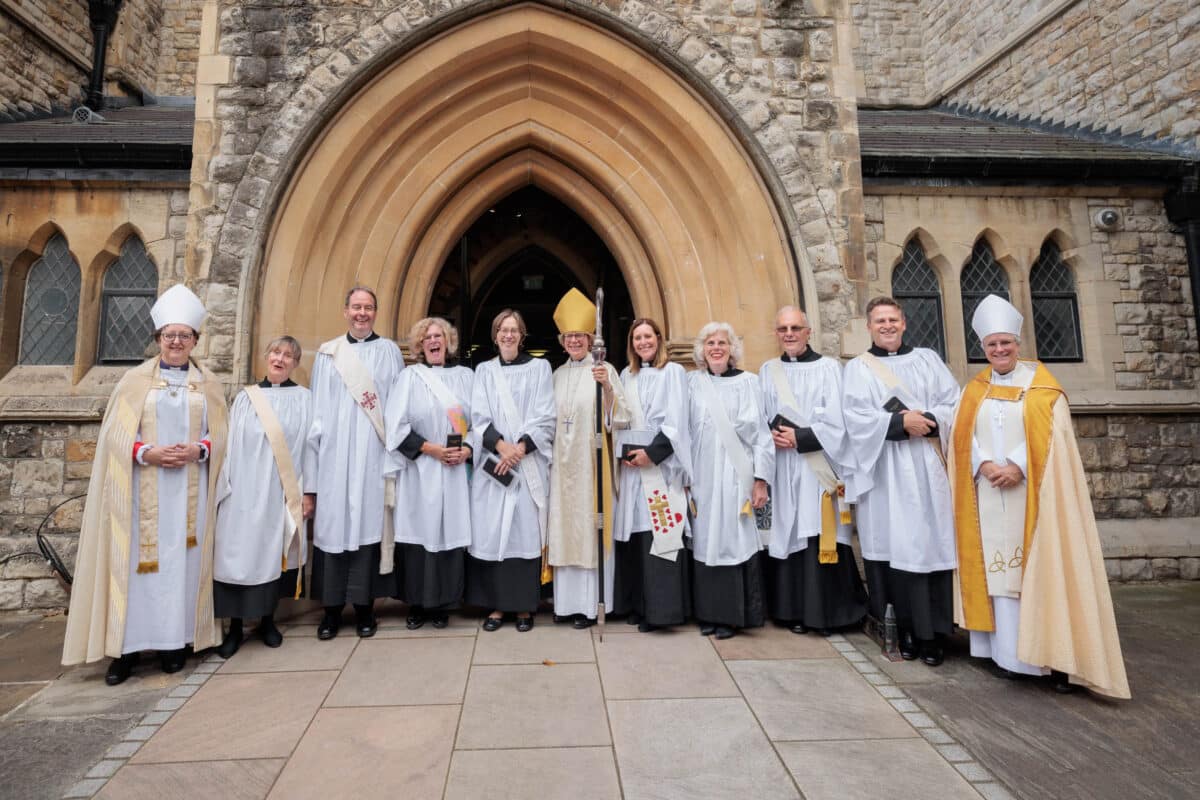What is SSM?
Self-supporting ministry (SSM) is a term which refers to ordained, licensed clergy who offer their ministry on an unpaid basis, often alongside their secular employment, contributing to church life without receiving a stipend.
Some SSMs regard themselves as being specifically called to exercise their ministry in the workplace (Ministers in Secular Employment or MSE). Sometimes this is explicitly authorised, for example an industrial chaplaincy. Often it is organised and recognised through a more informal arrangement or agreement with the employing company/organisation.
A common theme is that all SSMs participate in ministry in parishes on an unpaid basis and as such are a gift to the Church.
How can I tell if that is my calling?
God calls us in many ways so there is no one answer to this question. Sometimes indicators can be a strong pull to witness as a Christian in the workplace, or places outside of “church”. Another could be a call to ministry with a sense that this is not to full-time, parish-focused ministry.
SSM is a profound, distinctive calling which can come to those seeking to serve God in leadership and sacramental roles within the church but not through an otherwise “conventional” path. SSMs contribute to God’s work in the Diocese of London in a unique and valuable way – taking God to places where there is less visibility/engagement, highlighting and making present the gifts of the Church where they might otherwise be unfamiliar or unwelcome and providing support for the work undertaken in parish life without cost.
Are there rules about who can be SSM?
SSMs are discerned in the same way all possible ordained ministers are, through the Shared Discernment Process – see the pages here. God’s call is inclusive and diverse, and we welcome people from all walks of life to explore their calling.
How do I get selected?
The first step towards ordination is to talk to your vicar, chaplain, or equivalent. They will work with you to identify what type of ministry is right for your unique gifts and talents.
The Shared Discernment Process will explore your calling through many different meetings and interviews. It is not for the faint hearted as it will be deep and thorough.
The last part of the Process is a residential Stage 2 Panel that will decide whether to recommend to your bishop that you go forward for ordination training. However, it is the Bishop’s decision whether to sponsor you or not.
Where do I train, how long does it take and who pays for it?
The length of time you will study is dependant, first and foremost, on your age, which is where the conversation will start. However, we consider all relevant circumstances for a candidate to enable the best possible training pathway.
| RMF Band | Age on 1st Sept at start of training | Normal Pathway | Fees paid? | Maintenance paid? (Living costs) |
| 1 | Under 32 | 3 years full time training | Yes | Yes |
| 2 | 32 – 39 | 2 years full time training | Yes | Yes |
| 3 | 40 – 54 | 3 years part time training | Yes | No |
| 4 | 55+ | 2 years part time training | Yes | No |
There are different colleges offering different courses and a different experience. It is worth visiting a few to see what is likely to suit you. A list of theological institutions can be found here.
